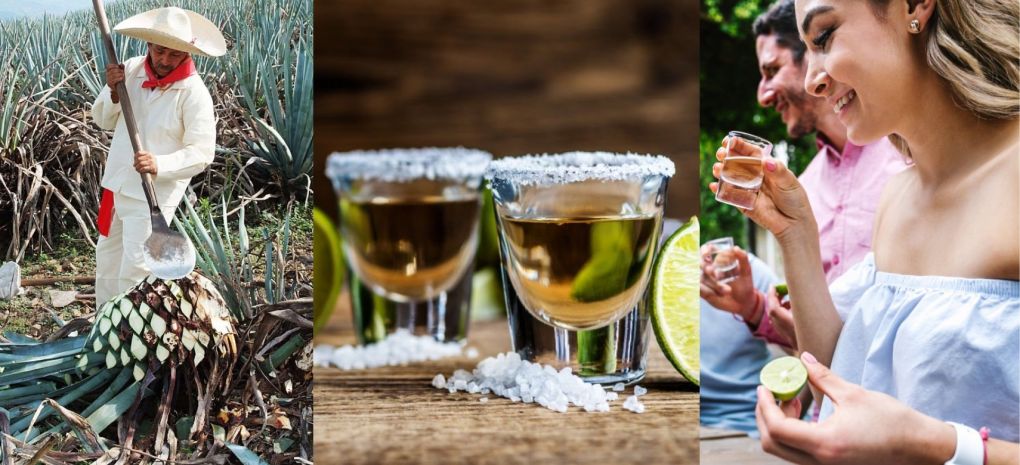
21/07/2023 Agave-based spirit's popularity soars, driven by consumer demand, innovative production, and sustainability emphasis, promising future growth
Agave-based spirits, including tequila and mezcal, have experienced a surge in popularity in recent years, leading to increased consumer demand and brand owner interest in alternative agave-based spirits both within and outside Mexico. The global agave-based spirits category witnessed an impressive 18% volume increase in 2021, with a steady compound annual growth rate (CAGR) of 6% between 2014 and 2019. In 2022, agave spirits have become the second most valuable spirits subcategory in the U.S., surpassing American whiskey in value. Additionally, tequila is projected to overtake vodka in 2023 to become the industry leader in terms of value.
Retailers are taking note of this trend, with 64% of them planning to allocate more shelf space to agave-based spirits compared to other spirits in the coming year. Tequila, in particular, has exceeded retailers' expectations, with 54% of them reporting that it outperformed all other spirits in the past year. This data highlights the increasing popularity and value of agave-based spirits, especially tequila, in the U.S. market. Projections suggest the category will maintain this growth trajectory, with an expected 7% volume CAGR from 2021 to 2026. Tequila, the largest segment of the agave-based spirits market, captured 2.5% of the global spirits market volume in 2021, up from 1.8% in 2016, and is also projected to grow at a 7% volume CAGR globally from 2021 to 2026.
As the popularity of agave-based spirits continues to rise, brand owners are exploring innovative ways to meet this growing demand. Some are producing spirits using agave plants cultivated outside Mexico, importing Mexican agave to be distilled elsewhere, or investing in traditional Mexican agave spirits beyond tequila and mezcal, such as Pernod Ricard's partnership with Casa Lumbre and Lenny Kravitz to develop Nocheluna Sotol.
One fascinating trend in the industry involves the production of alternative agave spirits in countries outside Mexico. While tequila and mezcal are geographically protected and must be produced in specific regions of Mexico, agave spirits have no such restrictions and can be made anywhere globally. Producers in countries like South Africa, Australia, India, and the United States are taking advantage of this flexibility to craft unique agave-based spirits. For example, Leonista Agave Spirit is made entirely from South African agave plants from the Karoo Desert. Maya Pistola Agavepura, produced in Goa, India, sources 100% Wild Agave Americana from the Deccan Plateau of India. Desert Door Original Texas Sotol, distilled from wild-harvested sotol in Texas, USA, is a cousin of the agave plant. These non-Mexican producers have the freedom to experiment with flavor profiles and sustainability stories, given their independence from strict regulations.
[[relatedPurchasesItems-46]]
In addition to these alternative agave spirits, other traditional Mexican spirits are gaining prominence. Raicilla, with its 400-year history mostly in Jalisco and Nayarit, is gradually becoming more recognized. Bacanora, akin to mezcal but specific to the Sonora state, gained Denomination of Origin status in 2000 and is enjoying a rise in popularity. Sotol, derived from the Dasylirion plant, is produced in Mexico and now Texas, garnering attention for its unique qualities. However, some Mexican agave spirits do not fit within existing categories due to geographical constraints or prohibitive certification costs. Nonetheless, these spirits contribute to the overall innovation and expansion of the agave-based spirits market.
The increasing awareness and education among consumers about the origins of raw materials used in agave spirits production are pushing brands to emphasize sustainability stories and the influence of local terroir. Consumers are seeking more transparency and eco-conscious practices in the beverages they consume, and agave-based spirits are no exception. Brand owners are capitalizing on this growing trend by highlighting their commitment to environmental responsibility, supporting local communities, and preserving traditional production methods.
Looking ahead, the future of agave-based spirits appears promising, with ample room for growth and innovation. The expanding global market presents opportunities for brand owners to diversify their offerings and cater to discerning consumers seeking unique and sustainably produced spirits. As alternative agave spirits gain traction and recognition, the dominance of tequila in the agave spirit space might face challenges in the longer term, mirroring the evolution of the whisky category where options have diversified considerably over the past two decades.
In sum, the agave-based spirits industry is bolting, fueled by rising demand, increased consumer interest, and innovative approaches to production and marketing. From alternative agave spirits produced outside Mexico to lesser-known traditional Mexican spirits, the market is evolving, catering to the changing preferences of a diverse and conscious consumer base. As brand owners continue to push the boundaries of agave-based spirits, the future is bright for this category, offering exciting possibilities for both industry players and spirits enthusiasts alike.



